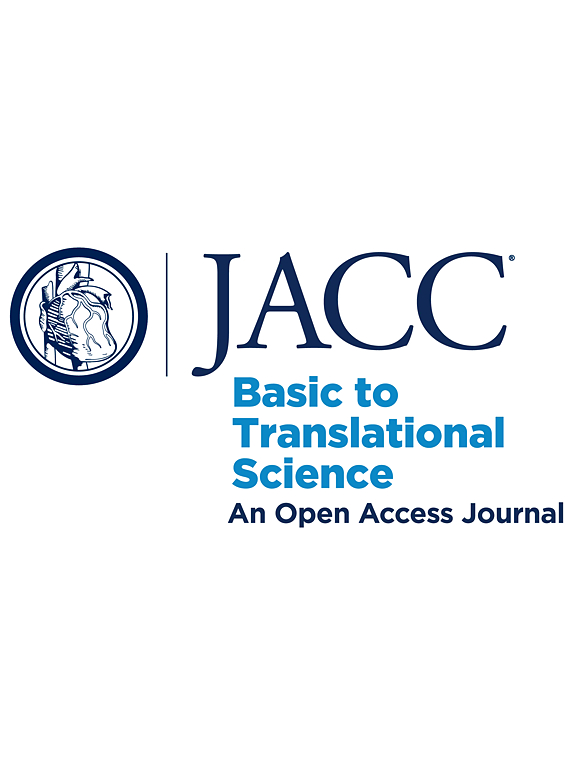Metabolic and Pharmacokinetic Profiling of a Ketone Ester by Background SGLT2 Inhibitor Therapy in HFrEF
IF 8.4
1区 医学
Q1 CARDIAC & CARDIOVASCULAR SYSTEMS
引用次数: 0
Abstract
Growing evidence supports therapeutic ketosis in heart failure with reduced ejection fraction, though uncertainty exists regarding use with SGLT2i and dose-dependent effects. In a phase I trial of 2 ketone ester (KE) doses in 20 heart failure with reduced ejection fraction participants, stratified by background SGLT2i, the authors detailed pharmacokinetic parameters, noting rapid ketosis and short half-life. KE was associated with lower non-esterified fatty acid, branched-chain amino acids, and most acylcarnitines (except C2 and C4-OH, which increased); differences were observed by SGLT2i and KE dose. Increases in heart rate and decreases in systolic blood pressure, pH, and bicarbonate were generally transient. KE ingestion induces rapid changes in key metabolic pathways, differentially affected by SGLT2i (fatty acid metabolism) and KE dose (ketone metabolism). Hemodynamic effects were transient and irrespective of dose or SGLT2i. (Ketone Pharmacokinetic Study in HFrEF; NCT05757193)
求助全文
约1分钟内获得全文
求助全文
来源期刊

JACC: Basic to Translational Science
CARDIAC & CARDIOVASCULAR SYSTEMS-
CiteScore
14.20
自引率
1.00%
发文量
161
审稿时长
16 weeks
期刊介绍:
JACC: Basic to Translational Science is an open access journal that is part of the renowned Journal of the American College of Cardiology (JACC). It focuses on advancing the field of Translational Cardiovascular Medicine and aims to accelerate the translation of new scientific discoveries into therapies that improve outcomes for patients with or at risk for Cardiovascular Disease. The journal covers thematic areas such as pre-clinical research, clinical trials, personalized medicine, novel drugs, devices, and biologics, proteomics, genomics, and metabolomics, as well as early phase clinical trial methodology.
 求助内容:
求助内容: 应助结果提醒方式:
应助结果提醒方式:


